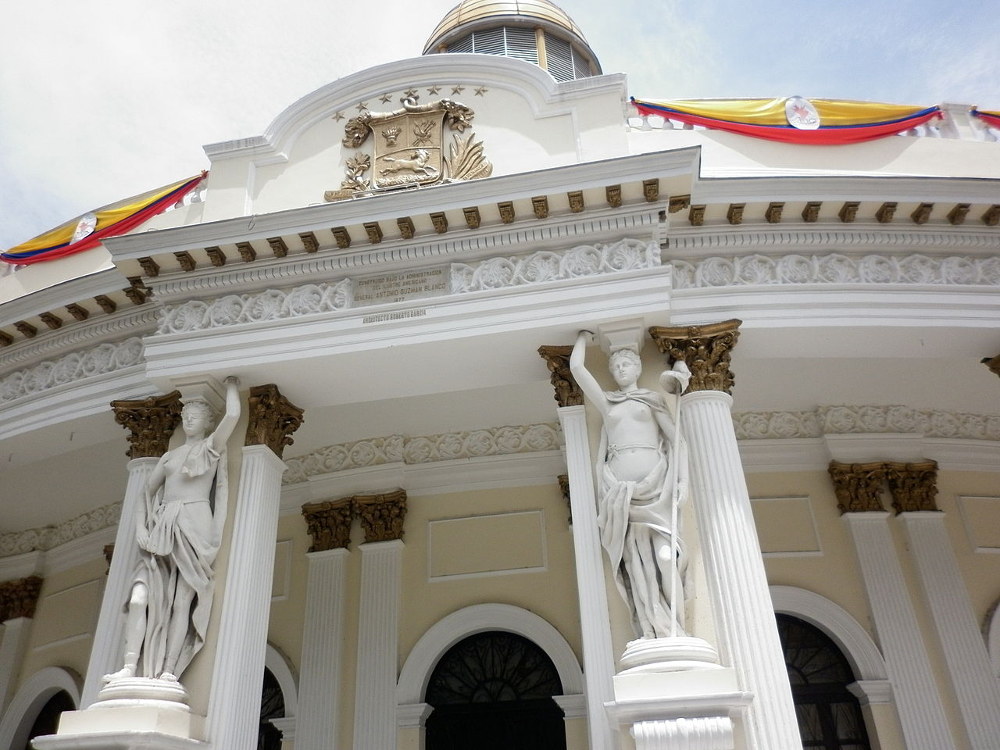MONTEVIDEO, Uruguay (ViaNews) - This Sunday, Venezuela will hold elections despite debates on the legitimacy and transparency of the electoral process, also questioned by human rights organizations such as Amnesty International or Human Rights Watch.
The elections that aim to elect a new president and members of the regional and municipal legislative councils had been first scheduled for April 22 and then postponed for tomorrow 20 May 2018.
Hyperinflation in Venezuela concerns the whole world, a stabilization of the economy will be fundamental for the future of the country, a country highly dependant on its oil reserves.
President Nicolás Maduro is favorite to win the presidential election, though his main opposition candidate Henri Falcón (a former Chavista) keeps raising in the opinion polls.
Datanalisis, a Venezuelan pollster with activities in the Andean region, Central America, and the Caribbean, points to a technical tie result between both candidates.
According to ICS (International Consulting Services), the current president would win the election by a margin of 55.9 percent of voter intentions.
Regardless of who wins the Presidential Election, international organizations such as the Summit of the Americas and the European Union demand change in order to find a solution to the economic and social crisis.
Today, Venezuela is one of the poorest countries in the World. It has been declared in partial default due to its late debt payments while inflation remains the highest in the world for the last three years.
The International Monetary Fund (IMF) has predicted an inflation increase in Venezuela over 2000 percent by the end of 2018 while projects a total 3.3 percent in the world for the same period.
Summit of the Americas condemns the Venezuelan elections
Last month at The Eight Summit of the Americas held in Lima, Perú, a declaration was issued and signed by the United States and 16 countries demanding "presidential elections with the guarantees required for a free, fair, transparent and democratic process, without political prisoners, including the participation of all Venezuelan political actors. The elections that do not comply with these conditions will lack legitimacy and credibility."
EU fails to recognize the upcoming Venezuelan elections
Early this month, the European Parliament has stated they will not recognize this Sunday's result. In the European Parliament resolution of 3 May 2018, they firmly repudiate the resolution by the "internationally non-recognised National Constituent Assembly endorsed by the National Electoral Council to hold the early presidential elections". They request "the elections to be suspended immediately", "until the necessary conditions for credible, transparent and inclusive elections are met".
Venezuelan elections won't be recognized by the EU unless they are "based on a viable electoral calendar, agreed in the context of the national dialogue with all relevant actors and political parties". To enforce that, there is a need to lift "bans on political opponents, the freeing of political prisoners", and "monitoring by independent international observers". Moreover, it reinstates that the "legitimate government resulting from such elections must urgently address the current economic and social crisis in Venezuela".
EU Invites "both the government and opposition to adopt without further delay a macroeconomic stabilization plan together with the international financial institutions to address the numerous challenges the country is faced with", referring to the "humanitarian crisis caused by hyperinflation and shortages of basic goods and medicines".
[caption id="attachment_4190" align="aligncenter" width="1000"]

Venezuelan National Assembly in Caracas. Photo by: Javier Martinez.[/caption]
Thursday, in Caracas, the Venezuelan Capital City, Nicolás Maduro made his last campaign act, before Sunday's elections, with the former soccer player Diego Maradona.
 Venezuelan National Assembly in Caracas. Photo by: Javier Martinez.[/caption]
Thursday, in Caracas, the Venezuelan Capital City, Nicolás Maduro made his last campaign act, before Sunday's elections, with the former soccer player Diego Maradona.
Venezuelan National Assembly in Caracas. Photo by: Javier Martinez.[/caption]
Thursday, in Caracas, the Venezuelan Capital City, Nicolás Maduro made his last campaign act, before Sunday's elections, with the former soccer player Diego Maradona.
